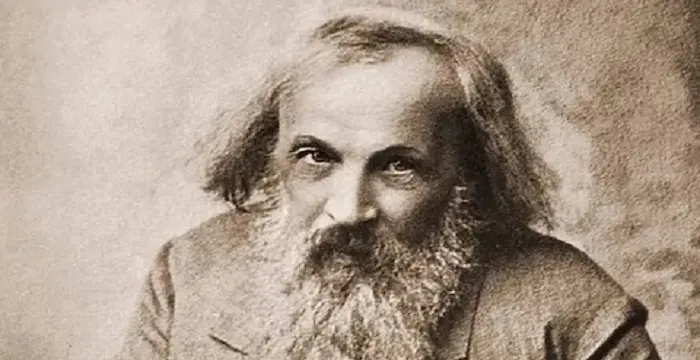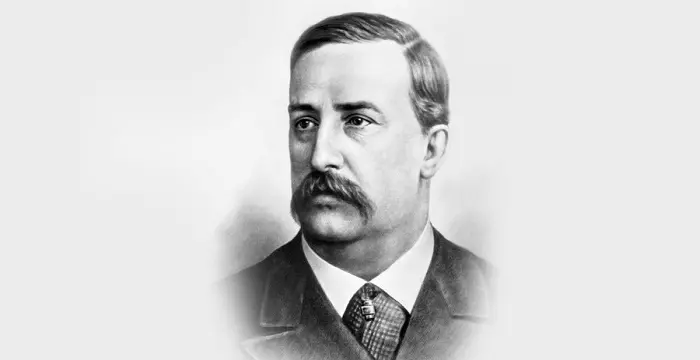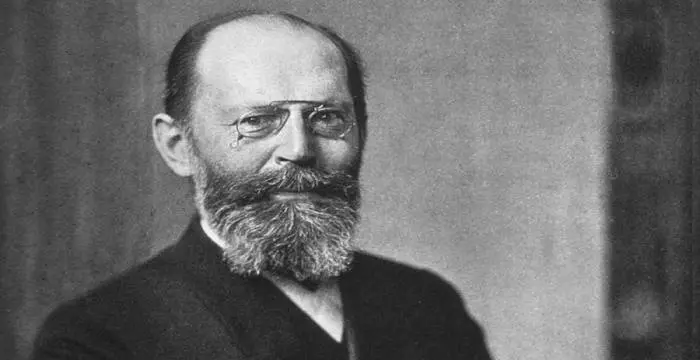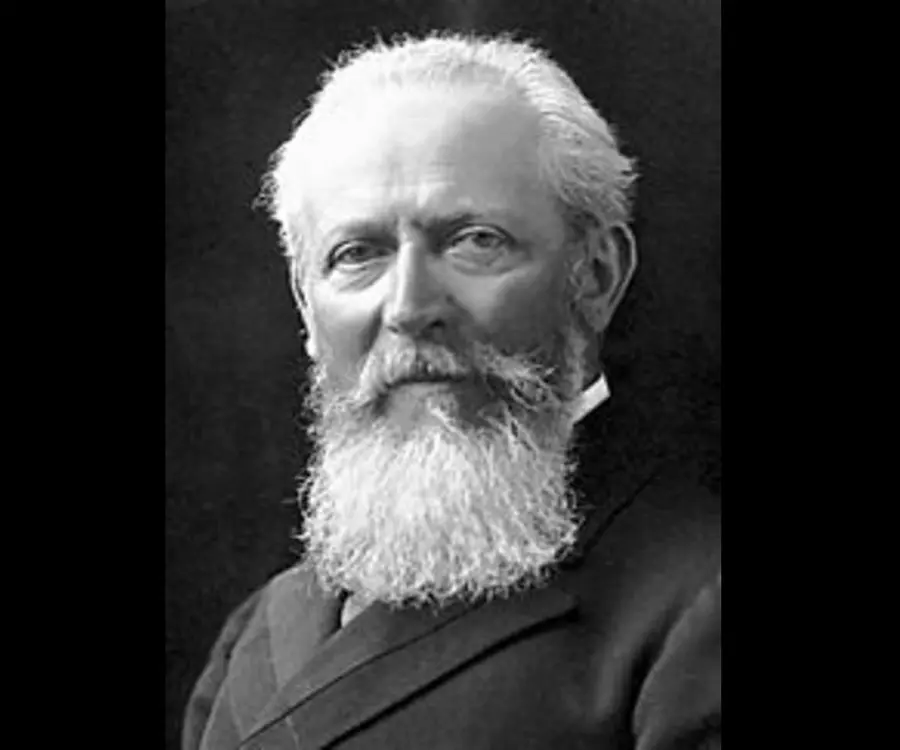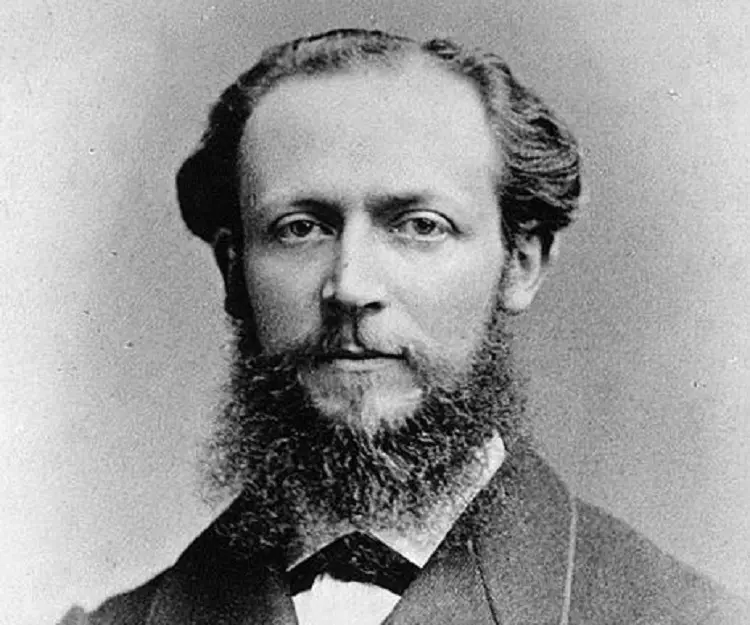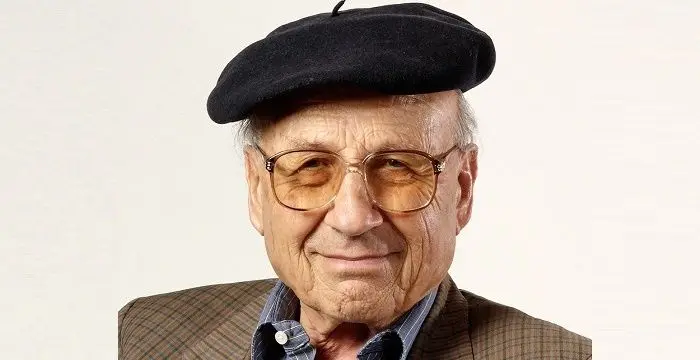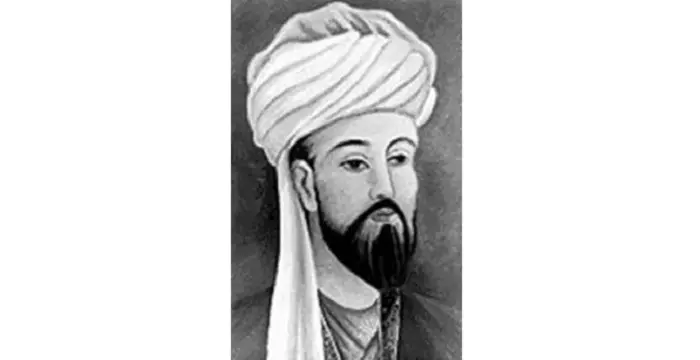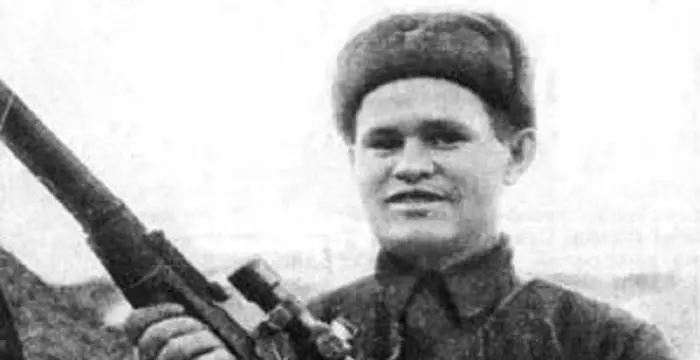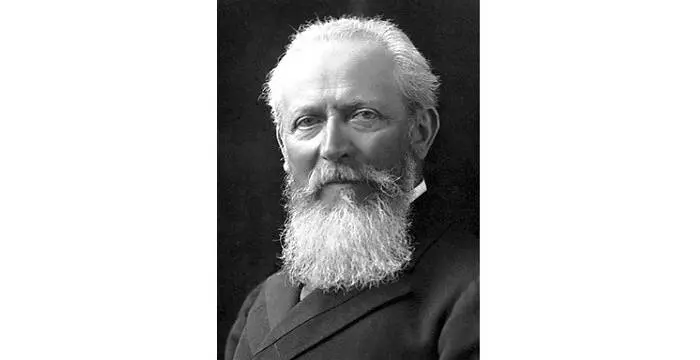
Otto Wallach - Organic Chemists, Family and Life
Otto Wallach's Personal Details
Otto Wallach was a German chemist who won the 1910 Nobel Prize in chemistry for his work on alicyclic compounds
| Information | Detail |
|---|---|
| Birthday | March 27, 1847 |
| Died on | February 26, 1931 |
| Nationality | German |
| Famous | Scientists, Chemists, Organic Chemists |
| Universities |
|
| Birth Place | Königsberg |
| Religion | Judaism |
| Gender | Male |
| Sun Sign | Aries |
| Born in | Königsberg |
| Famous as | Chemist |
| Died at Age | 83 |
// Famous Organic Chemists
Dmitri Mendeleev
Dmitri Mendeleev was a Russian chemist who is best known for his discovery of the periodic law. Check out this biography to know about his childhood, life, achievements, works & timeline
Aleksandr Borodin
Aleksandr Borodin was a prodigal Russian music composer and scientist. This biography gives detailed information about his childhood, life, works, achievements and timeline.
Hermann Emil Fischer
Emil Fischer was a Nobel Prize winning chemist from Germany who is known for inventing the ‘Fischer Projection’ method. To know more about his childhood, career, profile and timeline read on
Otto Wallach's photo
Who is Otto Wallach?
Otto Wallach was a German chemist born in the Kingdom of Prussia in the middle of nineteenth century. He received the 1910 Nobel Prize in chemistry for his work on alicyclic compounds. Educated at a gymnasium, which laid more stress on humanities than science, he started experimenting on different chemical reactions at home. Ultimately, he graduated from the University of Göttingen with chemistry and received his PhD from there at the age of twenty-two. At the age of twenty-three, he joined the University of Bonn as a Lecturer of Pharmacy; but soon was drafted into the Franco Prussian War of 1870. After the war he first tried to settle in Berlin, but circumstances were such that he had to rejoin the University of Bonn for the second time. It was at this phase that his mentor, Friedrich August Kekulé, came across an old and forgotten cupboard full of essential oils and asked him to investigate on them. Thus he began a long and detailed experimentation. Among other things, it led to the discovery of terpene and established the foundation of modern perfume industry.
// Famous Scientists
Juliane Koepcke
Juliane Koepcke is a German-Peruvian biologist, who was the lone survivor among the 92 passengers and crew of the ill-fated LANSA Flight 508 that crashed in the Peruvian rainforest on 24 December 1971. Know more about her life in this biography.
Henry Cavendish
Henry Cavendish was a theoretical chemist and physicist, renowned for discovery of hydrogen and calculation of the mass of earth. To know more about his childhood, profile, timeline and career read on
Konstantin Tsiolkovsky
Konstantin Tsiolkovsky was a Russian rocket scientist and a pioneer of astronautics. This biography provides detailed information about his childhood, family, personal life, career, achievements, etc.
Childhood & Early Life
Otto Wallach was born on 27 March 27 1847, in Königsberg, an ancient city located in the Kingdom of Prussia. Now, the town is part of Russia and has been renamed Kaliningrad.
His father, Gerhard Wallach, was a high ranking civil servant with transferable job. Born as a Jew, he later converted to Lutheranism. His mother, Otillie Wallach, was a Protestant German.
Soon after Otto’s birth, the family moved first to Stettin and then to Potsdam. It was at Potsdam that Otto started his education at a humanistic Gymnasium. Science subjects were hardly taught in those schools.
At that stage, he grew a liking towards literature and history of art, an interest he retained throughout his life. At the same time, he privately studied chemistry and undertook many experiments at home.
Ultimately, it was in 1867, that he enrolled at the University of Göttingen with chemistry as his main subject. At that time Friedrich Wöhler, who is best known for his synthesis of urea, was the head of the department. Young Wallach was as much influenced by him as by Professor Fittig and Professor Hübner.
Nonetheless, very soon he left University of Göttingen to join University of Berlin. However, he rejoined Göttingen after studying one semester at Berlin with August Wilhelm von Hofmann and G. Magnus and immersed into work.
Although the gas in the laboratory was turned off after 5 pm every evening he carried on his work under candlelight. Ultimately he received his PhD in 1869 after working for five semesters only. His thesis dealt with the position isomers in the toluene series.
Career
After receiving his doctorate degree in 1869, Wallach joined H. Wichelhaus in Berlin. While working with him on nitration of b-naphthol, he received an invitation from Friedrich August Kekulé to join him at the University of Bonn.
Accordingly Wallach joined University of Bonn in 1870 as a lecturer of pharmacy. The same year, he was drafted into the army and joined the Franco Prussian War, which started on 19 July 1870.
Once the war ended on 10 May 1871, Wallach first went to Berlin and took up a job at Aktien-Gesellschaft für Anilin-Fabrikation, which manufactured dyes and strains. However, he could not tolerate the fumes there and in 1872, returned to the University of Bonn and remained attached to it until 1889.
Initially Wallach was appointed as an assistant at the organic laboratory. Later he became a Privatdozent and finally in 1876, he was appointed as the Professor Extraordinary of Pharmacy.
Although he was more interested in chemistry, when in 1879, the Chair of Pharmacology fell vacant, Wallach was more or less forced to take it. Sometime now, he started working on amid chlorides and phosphorus pentachloride and discovered imino-chlorides. During this period, he also worked on imide chlorides, amidines, glyoxalines etc.
Meanwhile, Professor Kekulé discovered an old forgotten cupboard, in which there were rows of bottles containing essential oil. He asked Wallach to examine them. In this way, Wallach entered a field that would later establish him as a renowned chemist and earn him the Nobel Prize in Chemistry.
In 1884, he published his first paper on the essential oils. At that time, it was believed that the so called C10H16 group contained various elements called citrene, carvene, cinene, cajuputene, eucalyptine, hesperidine, etc. In this publication he raised questions about it.
In 1885, he confirmed that many of these elements were identical. However, it took him many more years to complete his studies. He published his final paper in 1909.
Meanwhile, in 1889, Wallach was appointed to the Wöhler's Chair at the Chemical Institute at Göttingen. At the same time, he also became the Director of the Institute. He retired from there in 1915.
Major Works
Wallach is best remembered for his work on the molecular structure of the essential oils. He first separated the components of various oils by repeatedly distilling them and then studied their physical properties. Finally he came to conclusion that many of these oils are identical to one another.
In addition, he was also able to isolate a group of fragrant substance from these oils. He named it terpenes. His experimentation took almost fifteen years to complete. Finally in 1909, he published his findings in a paper titled ‘Terpene und Campher’. His work formed the basis of modern perfume industry.
Wallach is also remembered for his work on amid chlorides, on azo dyes and diazo compounds. His conversion of chloral into dichloroacetic acid is another of his important works.
Awards & Achievements
Wallach was awarded the 1910 Nobel Prize in Chemistry "in recognition of his services to organic chemistry and the chemical industry by his pioneer work in the field of alicyclic compounds".
In 1912, Wallach received the Davy Medal from the Royal Society of London “for his researches on the chemistry of the essential oils, and the cyclo-olefines".
He also received Honorary Fellowships of the Chemical Society in 1908 and became Honorary Member of the Verein Deutscher Chemiker in 1912.
In 1911, Wallach received the Kaiserlicher Adlerorden III Klasse (Imperial Order of the Eagle) and in 1915 the Königlicher Kronorden II Klasse (Royal Order of the Crown).
He also received Honorary Doctorates from University of Manchester, University of Leipzig and the Technological Institute of Braunschweig.
Personal Life & Legacy
Otto Wallach remained a lifelong bachelor dedicating all his time and energy to his work. He died on 26 February 1931, at the age of 83, from natural causes at Göttingen. He was buried at Göttinger Stadtfriedhof.
In organic chemistry, the rule that states, racemic crystals tend to be denser than their chiral counterparts, has been named ‘Wallach’s Rule’. Besides, there are the ‘Wallach Rearrangement’ the ‘Wallach Degradation’ and ‘the Leuckart-Wallach reaction’ all named after Otto Wallach.
// Famous Chemists
Henry Cavendish
Henry Cavendish was a theoretical chemist and physicist, renowned for discovery of hydrogen and calculation of the mass of earth. To know more about his childhood, profile, timeline and career read on
Walter Kohn
Nobel Laureate Walter Kohn was an Austrian-born American theoretical chemist and physicist. Check out this biography to know about his childhood, life, achievements, works & timeline.
Jabir Ibn Hayyan
Jabir Ibn Hayyan was a medieval era polymath. Check out this biography to know about his life, works and achievements.
Otto Wallach's awards
| Year | Name | Award |
|---|---|---|
Other | ||
| 0 | Nobel Prize in Chemistry | |
Otto Wallach biography timelines
- // 27th Mar 1847Otto Wallach was born on 27 March 27 1847, in Königsberg, an ancient city located in the Kingdom of Prussia. Now, the town is part of Russia and has been renamed Kaliningrad.
- // 1867Ultimately, it was in 1867, that he enrolled at the University of Göttingen with chemistry as his main subject. At that time Friedrich Wöhler, who is best known for his synthesis of urea, was the head of the department. Young Wallach was as much influenced by him as by Professor Fittig and Professor Hübner.
- // 1869Although the gas in the laboratory was turned off after 5 pm every evening he carried on his work under candlelight. Ultimately he received his PhD in 1869 after working for five semesters only. His thesis dealt with the position isomers in the toluene series.
- // 1869After receiving his doctorate degree in 1869, Wallach joined H. Wichelhaus in Berlin. While working with him on nitration of b-naphthol, he received an invitation from Friedrich August Kekulé to join him at the University of Bonn.
- // 19th Jul 1870Accordingly Wallach joined University of Bonn in 1870 as a lecturer of pharmacy. The same year, he was drafted into the army and joined the Franco Prussian War, which started on 19 July 1870.
- // 1876Initially Wallach was appointed as an assistant at the organic laboratory. Later he became a Privatdozent and finally in 1876, he was appointed as the Professor Extraordinary of Pharmacy.
- // 1879Although he was more interested in chemistry, when in 1879, the Chair of Pharmacology fell vacant, Wallach was more or less forced to take it. Sometime now, he started working on amid chlorides and phosphorus pentachloride and discovered imino-chlorides. During this period, he also worked on imide chlorides, amidines, glyoxalines etc.
- // 1884In 1884, he published his first paper on the essential oils. At that time, it was believed that the so called C10H16 group contained various elements called citrene, carvene, cinene, cajuputene, eucalyptine, hesperidine, etc. In this publication he raised questions about it.
- // 1885 To 1909In 1885, he confirmed that many of these elements were identical. However, it took him many more years to complete his studies. He published his final paper in 1909.
- // 1889 To 1915Meanwhile, in 1889, Wallach was appointed to the Wöhler's Chair at the Chemical Institute at Göttingen. At the same time, he also became the Director of the Institute. He retired from there in 1915.
- // 1908 To 1912He also received Honorary Fellowships of the Chemical Society in 1908 and became Honorary Member of the Verein Deutscher Chemiker in 1912.
- // 1909In addition, he was also able to isolate a group of fragrant substance from these oils. He named it terpenes. His experimentation took almost fifteen years to complete. Finally in 1909, he published his findings in a paper titled ‘Terpene und Campher’. His work formed the basis of modern perfume industry.
- // 1910Wallach was awarded the 1910 Nobel Prize in Chemistry "in recognition of his services to organic chemistry and the chemical industry by his pioneer work in the field of alicyclic compounds".
- // 1911 To 1915In 1911, Wallach received the Kaiserlicher Adlerorden III Klasse (Imperial Order of the Eagle) and in 1915 the Königlicher Kronorden II Klasse (Royal Order of the Crown).
- // 1912In 1912, Wallach received the Davy Medal from the Royal Society of London “for his researches on the chemistry of the essential oils, and the cyclo-olefines".
- // 26th Feb 1931Otto Wallach remained a lifelong bachelor dedicating all his time and energy to his work. He died on 26 February 1931, at the age of 83, from natural causes at Göttingen. He was buried at Göttinger Stadtfriedhof.
// Famous Aries Celebrities peoples
Skai Jackson
Skai Jackson is an American child actress with huge fan following. Find more about her family & personal life, relationships, facts and more.
Shemar Moore
Shemar Moore is a model turned actor best known for his role in the television series ‘The Young and the Restless’. This biography of Shemar Moore provides detailed information about his childhood, life, achievements, works & timeline.
Vasily Zaytsev
Vasily Zatysev was a Russian sniper who served during the World War II. Check out this biography to know about his childhood, family life, achievements and fun facts about him.
Ivey Meeks
Ivey Meeks is an American YouTube star and model. Let’s have a look at her family and personal life including age, date of birth, net worth, boyfriends and fun facts.
Tobi Lerone
Check out all that you wanted to know about Tobi Lerone, the famous YouTube Personality and gamer; his birthday, his family and personal life, his girlfriends, fun trivia facts and more.
Simone Signoret
Simone Signoret was a French actress who became the first French person to win an Academy Award. Check out this biography to know about her childhood, family life, achievements and other facts related to her life.
Otto Wallach's FAQ
What is Otto Wallach birthday?
Otto Wallach was born at 1847-03-27
When was Otto Wallach died?
Otto Wallach was died at 1931-02-26
Where was Otto Wallach died?
Otto Wallach was died in Göttingen
Which age was Otto Wallach died?
Otto Wallach was died at age 83
Where is Otto Wallach's birth place?
Otto Wallach was born in Königsberg
What is Otto Wallach nationalities?
Otto Wallach's nationalities is German
What was Otto Wallach universities?
Otto Wallach studied at University of Göttingen
What is Otto Wallach's religion?
Otto Wallach's religion is Judaism
What is Otto Wallach's sun sign?
Otto Wallach is Aries
How famous is Otto Wallach?
Otto Wallach is famouse as Chemist
